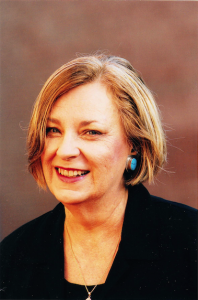The Plank Center is committed to developing the next generation of leaders and advancing the profession. It is our honor to recognize six leaders whose commitment to mentoring generates a powerhouse of influence and accelerates success in our profession.
Our question and answer series introduces the 2014 Milestones in Mentoring award recipients. 
Meet Dr. Lynne Sallot.
Lynne M. Sallot, Ph.D., APR, Fellow PRSA, and Josiah Meigs Distinguished Teaching Professor of Public Relations, joined the faculty of the Grady College at the University of Georgia in 1993. She began her teaching career as an adjunct professor at the University of Miami (1987-1990).
What does it mean to you to be awarded the “Milestones in Mentoring” award?
To receive this award is a huge honor. I felt privileged to have worked with Betsy Plank on the Educational Affairs Committee of PRSA and when I edited the 2nd and 3rd editions of the Learning to Teach book published by PRSA’s Educators Academy. So to receive any recognition from the Plank Center, especially with Bruce Berger’s name also attached to it, is a very great honor indeed. I am humbled and grateful to be recognized after those previously selected – my former Grady College Dean Cully Clark, Rochelle Ford, Elizabeth Toth and Judy VanSlyke Turk, all of whom have been outstanding role models in public relations education.
When did you realize you were a mentor and leader?
Probably when I was teaching as an adjunct professor at the University of Miami in the late 1980s and some of my students in their evaluations of classes I taught expressed appreciation for my efforts to help them beyond the classroom to get firm footings in their careers. Being able to remain in contact with former students over many years after they graduate has been very rewarding.
Describe your role as a mentor.
I believe my responsibility as an educator is to help my students feel confident beyond the classroom, especially as they encounter new challenges in pursuit of their careers, and I view my role as a mentor as a more intense and intensive extension of my teaching philosophy.
What is the biggest challenge in mentoring?
Understanding that mentoring relationships are meant to evolve and change over time is a challenge. I have studied mentoring as an academic discipline, which has been very helpful in practice. And I think the fact that I had so many years of professional experience before I enrolled in graduate school to earn the degrees needed for my teaching career has enhanced my mentoring endeavors.
What is your advice/tips that you would share with other mentors?
Recognize that all of us can learn and benefit from having mentors throughout our careers (and lives, for that matter!), and that you may need a mentor to learn how to mentor!
What is your advice for mentees (young professionals, students, etc.)?
Recognize that you’ll benefit from mentorship relationships throughout your careers, that mentoring relationships are different from friendships, that mentor relationships change over time, and that it is crucial to make wise choices of mentors as well as it is to recognize when it is time to wind down a mentor relationship. Some mentoring relationships do turn into friendships; others may not but this makes them no less valuable.
What inspires you or motivates you to be a mentor?
The satisfaction of giving back, of paying “it” forward, with “it” being what I’ve learned from my own mentors and from my work and life experiences. I do particularly enjoy watching former students become educators!
Who were your mentors and why?
My first mentor in higher education was Tom Steinfatt, my major professor in my masters program at the University of Miami, who encouraged me to pursue the Ph.D degree. Julie Dodd and Mary Ann Ferguson both mentored me during my doctoral studies at the University of Florida and beyond; Julie has always been a great role model and resource regarding teaching in general, and Mary Ann set high standards in conducting academic research, which I have tried to pass on to my students. Kathleen S. Kelly, who joined the faculty at UFlorida after I completed my studies there, became my academic career mentor through service in academic associations, and I still consider her a mentor; likewise, Dan Lattimore, Dean Kruckeberg, Betsy Plank, and Scott Cutlip all mentored me during my early years at the University of Georgia, as did my Grady College colleagues Dean Krugman and Elle Lester Roushanzamir. When I practiced PR, my most important mentors were my first boss, Garth H. Davies, who founded the Cayman Islands News Bureau in the late 1970s, and Robert Jackson, whose stellar career stretched from Disney to the Special Olympics, and who taught me how to research, write and implement detailed PR plans. And I am forever indebted to my earliest mentor – dating from my high school years – Jean Durborow, who to this day is an inspiration and a dear friend.
Published: August 2014
More from Dr. Lynne Sallot: